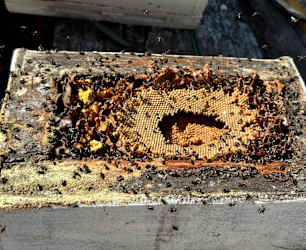By Jody Langlois, secretary of the Organisation for the Rescue and Research of Cetaceans in Australia (ORRCA)
An Indo-Pacific Bottlenose Dolphin (Tursiops Aduncus) was found about five kilometres upstream in Mullet Creek, Dapto in June.
Our dedicated team from ORRCA (the Organisation for the Rescue and Research of Cetaceans in Australia) closely monitored and assessed the dolphin over two days.
At dawn on the third day, responders from Sea World Foundation and the NSW National Parks and Wildlife Service (NPWS), alongside ORRCA, convened on site to determine the viability of a rescue and rehabilitation operation. During the morning debrief and preparation, the dolphin suddenly stranded. A veterinarian from Sea World Foundation subsequently assessed the animal on land and confirmed it was severely unwell.
Despite the combined efforts of all involved, the dolphin sadly passed away within the first 30 minutes of its stranding.
While it is not unusual for dolphins to enter creeks and estuaries, their behaviour is usually temporary as they hunt fish or seek calmer waters. When a dolphin lingers alone for several days, however, it can be a sign of confusion, illness or injury. Freshwater environments can also pose serious risks, leading to dehydration, sunburn and painful skin lesions.
In this case, the dolphin was believed to be old and in poor health, with responders noting a visible lump on its side. Its reluctance or inability to return to the ocean raised concern, prompting the decision to intervene.
Rescuing or relocating a dolphin is a complex operation that requires trained professionals, careful planning and specialised equipment. Bottlenose dolphins can weigh between 150 and 650 kilograms, and working with them safely demands experience and coordination. Responders must also consider the condition of the animal, the release environment and the risks to both the dolphin and the people involved.
Although this outcome was not what anyone had hoped for, every step taken in Mullet Creek was made with the animal’s welfare as the top priority. Events like this, while heartbreaking, provide valuable data and learning opportunities that help improve responses for future marine mammals in need.
ORRCA, a volunteer-run organisation, works alongside government agencies and partner organisations to protect whales, dolphins, seals and dugongs. From responding to live strandings to collecting valuable data, our members play a crucial role in marine conservation.
If you encounter a marine mammal in distress or out of its natural environment, the best thing you can do is keep your distance and call ORRCA’s 24/7 rescue hotline on (02) 9415 3333, providing details such as the location, time, behaviour of the animal and any visible injuries.
The dolphin stranding in Mullet Creek is a reminder of both the challenges and the importance of marine mammal rescue. While not every story has a happy ending, the dedication of responders ensures that each animal receives the care, respect and dignity it deserves.
Find out how you can get involved with ORRCA – no experience necessary, just a passion for our marine mammals and their home. Learn more at www.orrca.org.au






